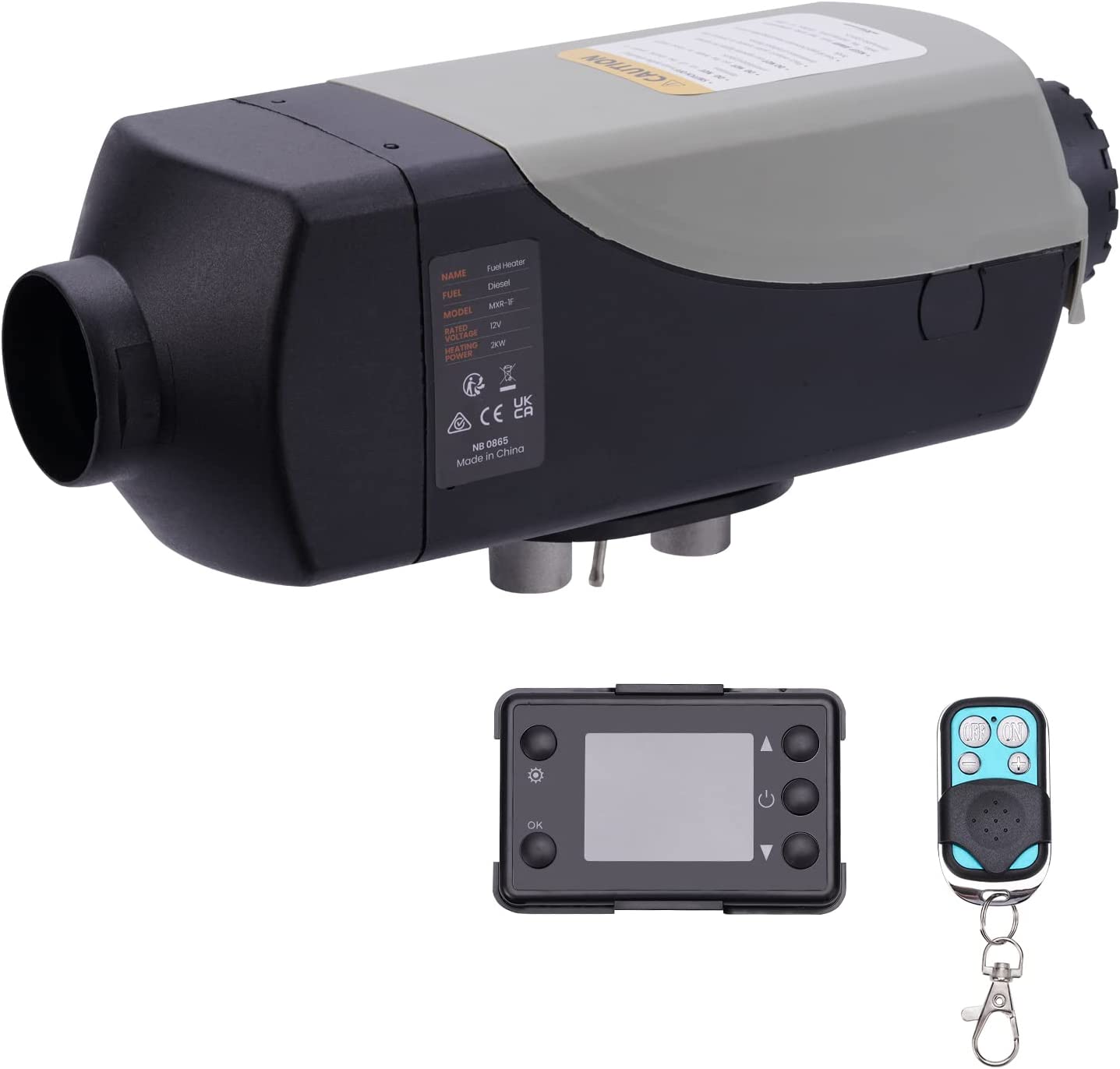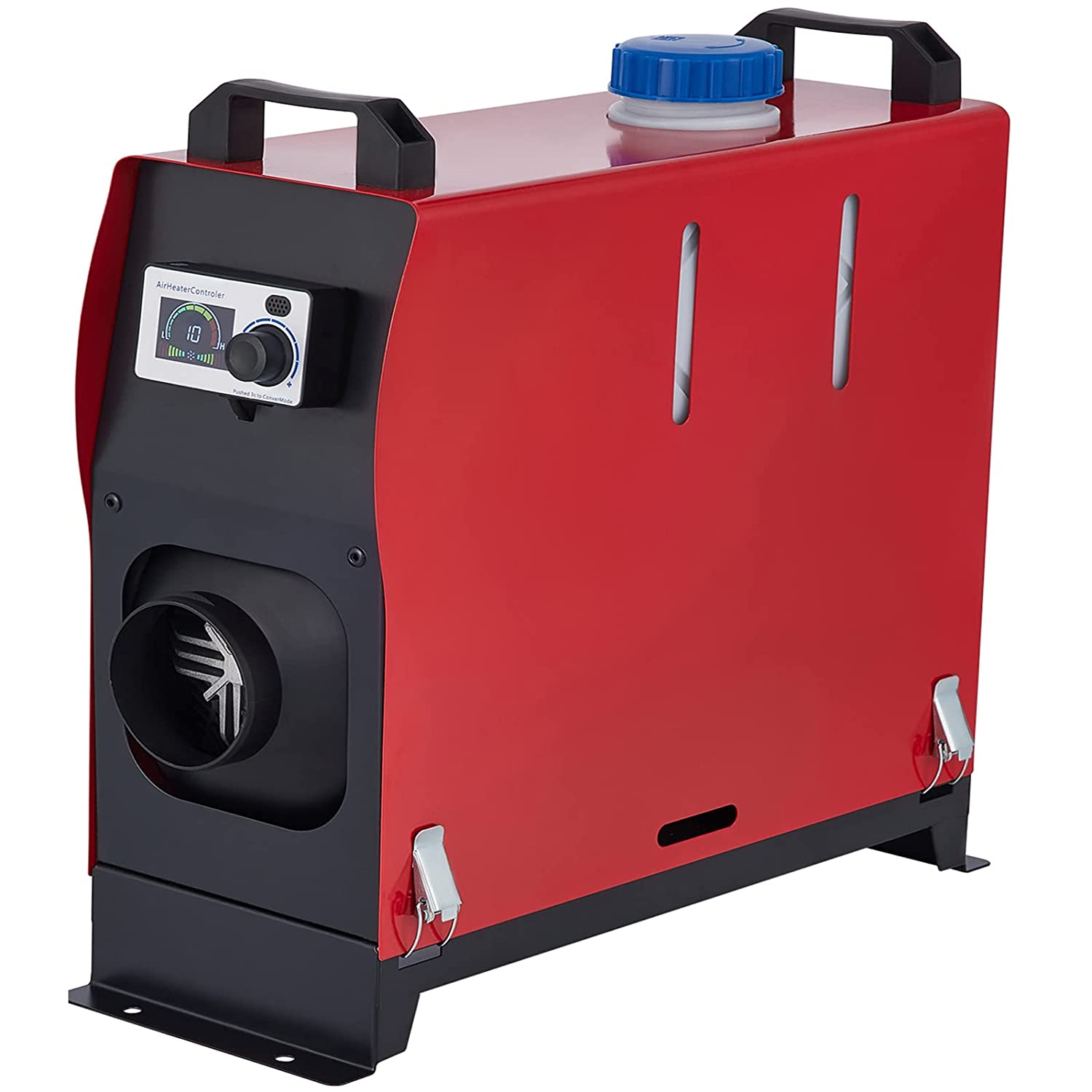Diesel Campervan Heaters – A Complete Guide & Recommendations

How Much Does It Cost to Insure a Campervan?
December 27, 2022
35 Of The Best Campervan Gifts – Your Ultimate Guide
January 9, 2023Diesel Campervan Heaters – A Complete Guide & Recommendations
Something you really don’t want to overlook with your campervan is the type of heating you’re going to use. Remember that just because your van has heating installed for while driving, you aren’t going to want to use that when you’re camping as it’ll completely drain your battery. Instead, you’ll want something like a diesel campervan heater.
These are heaters which are designed to be used when you’re stationary. In this guide we’ll explain everything you need to know about diesel campervan heaters, whether they’re a better choice than other types of heater, and pick out some of the best heaters you can buy right now.

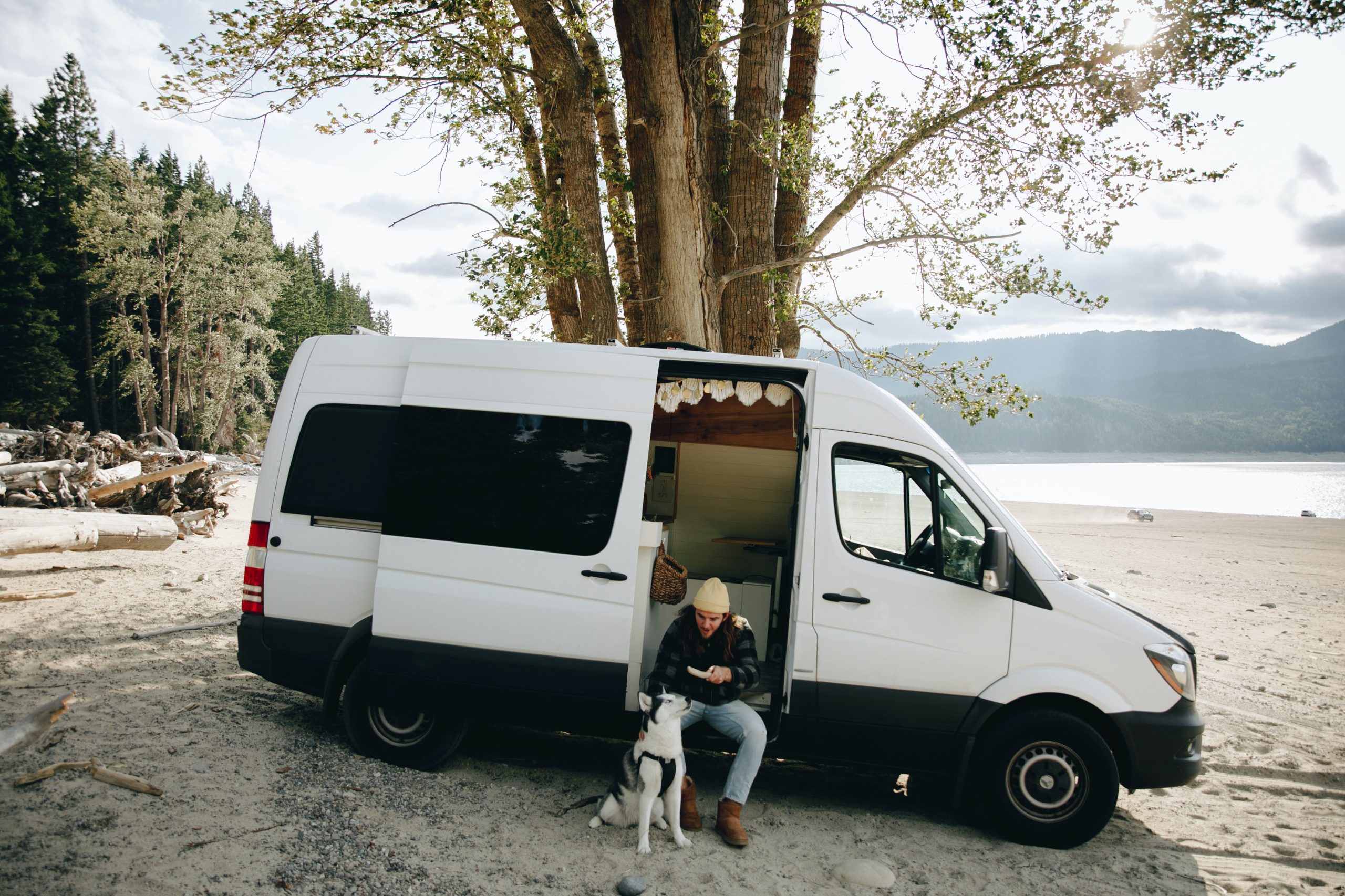

Why Do You Need a Heater in Your Campervan?
Campervans can be decked out to be really cosy, but that doesn’t mean they are warm. When you’re camping outdoors, the metal body of your car is not a good insulator, and very quickly the temperature inside your campervan is going to drop to match the temperature outside.
This is fine during the day, but at night things can get pretty cold – way colder than you’re going to want to deal with just with blankets, jumpers and thick socks.
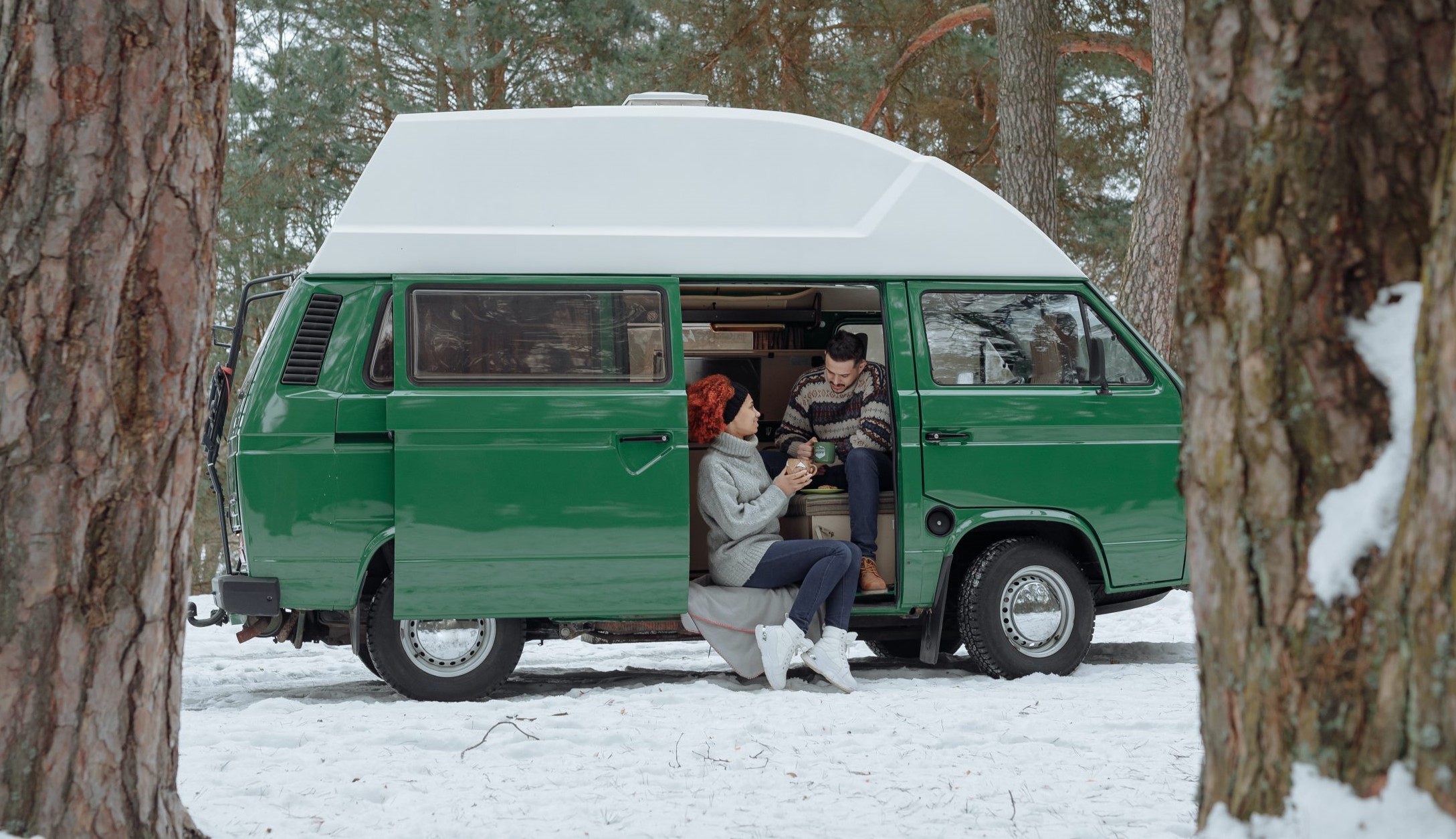
It’s true that some campervans are actually well insulated against the cold, but that still doesn’t mean you don’t need a heater – all it means is that it takes longer for the temperature to drop. It’s still dropping though.
So, you’re going to need a heater if you don’t want your camping trip to turn you into an icicle. And finding the right heater – one that is sufficient for warming your campervan, without costing the earth – isn’t too difficult if you know what you’re looking for.
How Does a Diesel Heater Work?
Campervan diesel heaters are some of the most popular options. They use diesel fuel, just like most campervans run on.
They work by drawing in cold air using a fan, passing it through a heat exchanger. This heat exchanger is heated by the burning of diesel fuel also mixed with air, with hot air then blown out at the other end, into your campervan.
This is the title

How Much Power Does a Diesel Heater Use?
Diesel campervan heaters are actually pretty good when it comes to efficiency – they don’t require a huge amount of electricity or fuel to run.
They’re 12V devices, so you’ll be able to run them from whatever power source you have for your other campervan electricals. Don’t be concerned by the 2kW and 5kW ratings you’ll see – that’s not how much electricity they use, but how much heat energy they generate.
They use a lot less than that – a 2kW heater will use around 30 watt-hours per hour, while a 5kW heater will use around twice as much, typically 60 watt-hours per hour.
They’ll use a bit more than that on startup – there’s an initial surge required to get the burner going – but then you can leave the heater running without it costing too much.
In terms of fuel consumption, expect a 2kW model to use around 0.3 litres of fuel ever hour, and around 0.5 litres for a 5kW model.
You might therefore assume that the 5kW model is the one to get, since it’ll provide 2.5 times the amount of heat energy for just 1.67 times the amount of fuel used. But it’s still overkill for most campervans – more on that below.
Why Use a Diesel Heater – Advantages and Disadvantages
Diesel heaters are not your only option for a campervan – there are realistically four different fuel types you could use. The three alternatives are LPG, electric and wood.
Diesel heaters are often one of the better choices though, because:
Diesel Heater Pros
- The heater size is relatively small, so it doesn’t take up a lot of room which you may need for other furnishings or personal items
- The fuel is readily available – just head to any petrol station in the UK
- It’s not super-cheap but it’s relatively cost-effective considering the small amount of power and fuel used.
However, due diligence is key so it is worth assessing some of the alternatives to Diesel heaters, to make sure you make the best choice for you. Some other options include:
- LPG Heaters: An LPG heater is cheaper than diesel and you may already have gas to cook with in your campervan. However, they are significantly heavier and larger than a diesel heater
- Electric Heaters: Electric heaters are not the best choice. The heaters you use at home rely on a 240V connection, which you’ll realistically only have if you’re at a campsite, and electric heaters which could connect to a battery will drain it rapidly. They just aren’t efficient enough for use remotely.
- Wood burners: Wood burners give a cosy dry heat and can also make a real statement in your camper. Unfortunately, they are a large and often costly project and are impractical for most campervan owners. You also need to check insurance, as some companies will not cover you for fire damage caused by a wood burner.
Are Diesel Heaters Safe To Use?
Some people hear the term ‘diesel heater’ and worry about how safe they are – after all, you’re burning a fuel in a small little device, and diesel fumes are hardly fun to breathe.
Diesel heaters are safe provided they are properly installed. They need to have an exhaust that pumps the fumes outside the campervan. You also must have a fire alarm and carbon monoxide alarm installed in your camper with a diesel heater, or indeed with any heater.
Adding a diesel heater to a self built campervan? Make sure it’s covered by the right insurance. Check out our tips about self build campervan insurance for comprehensive protection or get quotes from multiple provides to compare using the quote form.
If you plan on installing a heater yourself, please make sure you get it checked by a qualified professional for safety reasons before you use it.
Best Diesel Heaters for Campervan Owners
There are many different diesel campervan heaters you could buy, but we’ve picked out three of the best.
Name | |||
Heat Output | 2kW | 5kW | 2kW |
Fuel Source | Standalone tank | Standalone tank | Tank or Plumbed-in (No tank provided) |
Control | Control panel & remote | Control panel & remote | Control panel & remote |
Price | Approx. £130 | Approx. £180 | Approx. £700-£1,100 |
Warranty | None | None | 2 Year |
Country of Origin | USA | USA | Germany |
A good choice for a budget heater, this maXpeedingrods option will adequately heat any small or mid-sized camper with ease. It works quickly to heat your campervan, and is easy to operate, but it can be a little loud at times.
VEVOR NewDiesel Heater
This VEVOR heater is a step-up in terms of heat output, but otherwise is similar to the maXpeedingrods option. It comes with a large-capacity fuel tank and is a good, cost-effective choice for larger campervans.
Webasto Air Top 2000
The Webasto Air Top 2000 is a serious bit of kit, but comes at a serious price too. While you can order it direct, it’s best to find an approved dealer as they’ll install it for you, and can source any upgrades such as the option to have it working up to 2,200 metres altitude.
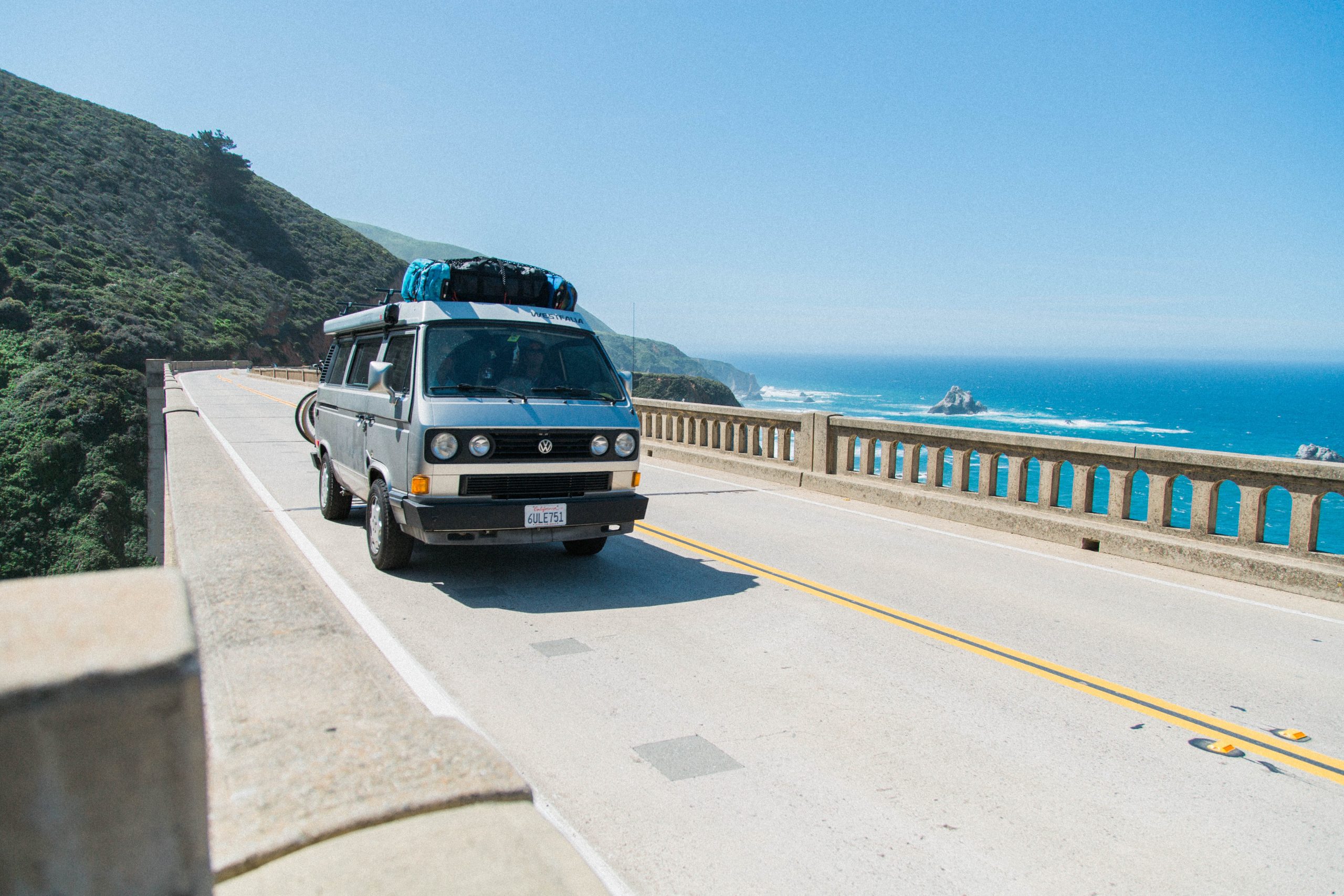


Considerations When Buying a Diesel Heater
Not every diesel heater is the same, and so when you’re looking to buy one there are a number of factors to consider. Click the boxes below to get more information, and assess whether a diesel heater is the best choice for you.
What to Consider:
To Recap
Diesel campervan heaters are a smart choice if you want to quickly and effectively heat your campervan, keeping yourself warm during those nights of adventure where the air outside is a little chillier than you’d otherwise like.
It’s best to always get them installed by a professional, even if the cost does increase, since you know they’re then safe to use. Keep this guide handy and you’ll have no problems finding a suitable heater to fit your camper, making sure you don’t feel the freeze on your next trip.




